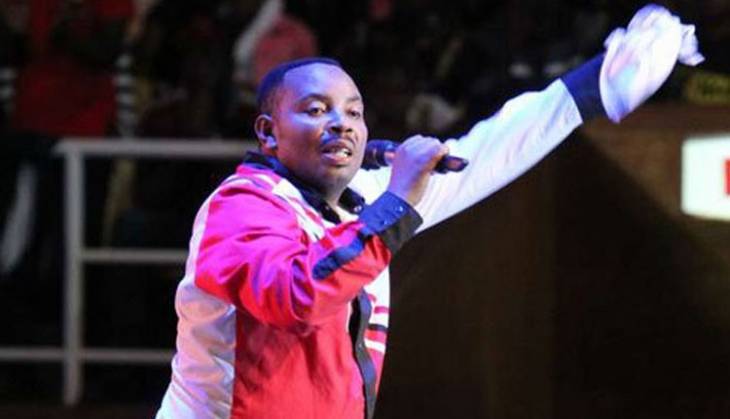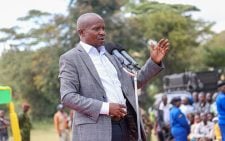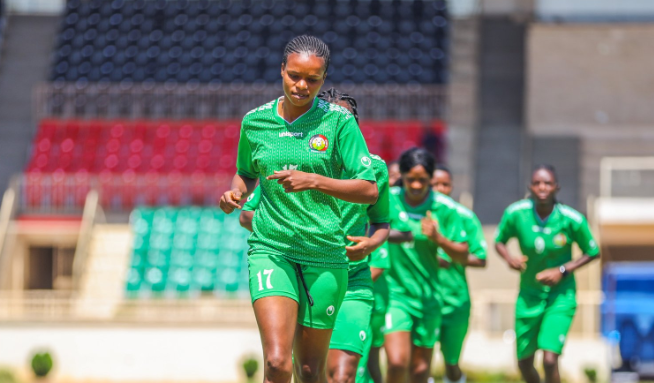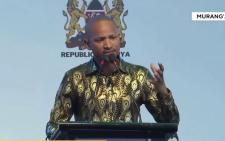Outlook on how entertainment scene will look like this political season

With the 2022 elections already creating frenzy in the adrenaline-pumped political arena, Manuel Ntoyai gets to find the season’s possible implications to the local entertainment industry.
Not the ideal bedfellows, but more than often, politics and entertainment fields find themselves on a collision path.
This year, politics will take the centre stage, and like when it normally does, the electioneering period is a bittersweet moment for the Kenya’s entertainment industry.
“Electioneering periods tend to have direct effect on the country’s economy as businesses struggle to operate due to the uncertain political atmosphere caused by heightened political campaigns.
When economic instability arising from political tensions and contested elections affects major sectors such as tourism, agribusiness and manufacturing, the entertainment sector isn’t spared either, since the latter’s growth and stability is a function of the former,” says Angela Ndambuki, the International Federation of the Phonographic Industry regional director-Sub-Saharan Africa.
Unlike past elections, this election period is expected to be different, having been proceeded by the Covid-19 pandemic, which has adversely affected various sectors including entertainment.
“In 2022, besides the prolonged effects of Covid-19, the entertainment sector is likely to be affected negatively mainly in the live performances sector as opportunities shrink due to the unstable political environment characterised by constrained spending, insecurity, and fear of possible violence outbreak,” adds Angela.
Injured players
While others might rightfully believe it is time for the creative industry to reap huge financial rewards by following the money trail, ‘flying too close to power’ has cost some of them dearly.
“People’s attention has been taken away, with the airwaves now taken over by the campaigns.
Youthful shows on radio and TV, where they play music and other kinds of entertainment are now being taken over by long hours of live coverage of political activities,” says music publicist and commentator Agnes Nonsizi.

She adds, “We have seen in the past where artistes have been contracted by various campaign teams for performances and endorsements due to their clout and possibly sway a certain demographic (youth) to vote in a certain direction.
As a public mirror, it is imperative for artistes to do due diligence when committing themselves to such engagements because it may end up affecting them in one way or another.”
Gospel singer Ben Githae has been a subject of online trolling due to his political stunts.
This was heightened, especially after the release of his hit song Ndaani, which praises the Jubilee administration of President Uhuru Kenyatta and his Deputy William Ruto during the last general elections.
It also acted as the duo’s campaign track to woo voters to vote for them the second time.
“At first, I was affected negatively because I would see the insults on social media and think about my family reading the same.
It gave me sleepless nights. People would tag me in their posts and throw all manners of expletives and I would trend for the whole day with memes.
I later grew a thick skin and now I actually enjoy them. I remember when I was photographed with Raila Odinga, I was a trending in almost all social media platforms.
Again, I remember someone recorded a video clip quoting my line Wakenya twasema and made an issue of it, asking which Kenyans I was speaking for and who had elected me their spokesman. It’s hilarious when you come to think of it,” he told Spice.
Reaping big
On the upside though, a lot of entertainers have already bagged performance contracts from political parties and aspirants to perform in political rallies.
Already, teenage sensation Trio Mio has been snapped by the Azimio La Umoja brigade, with the Cheza Kama Wewe hitmaker rumoured to have signed a six figure contract. The likes of rap trio Wakadinali are also on the same bandwagon.

With the rising artistes’ public performances, collective management organisations (CMOs)—with the support of the Kenya Copyright Board (Kecobo) and the country’s electoral body Independent Electoral and Boundaries Commission (IEBC)—will need to have a requirement for political parties and aspirants to acquire a license to perform any artistes’ works.
The CMOS should collect and pay out the royalties for the exploitation of copyrighted audio or visual materials played to the public.
“Before that happens, however, there will also be a need for the creatives to prepare well drafted contracts as well as the CMOs gazetting the campaign tariffs and promote the same.
If these factors are not considered then we might end up with tribal content, copyright infringements and misuse and exploitation (of artistes or their works) by the political circle,” says Ephantus Safari, a record label owner and former Performers Rights Society of Kenya (Prisk) chairman.
Already, Kecobo has issued statement in regards to this matter, urging artistes to be vigilant, as aspirants will be seeking to leverage the medium of music as effective tool of political mobilisation.
“There are key issues to check, but key among them is that they should negotiate the terms of their services preferably with lawyers in all cases to ensure they enter written contracts with politicians.
Again, they should also insist on cash before delivery of commissioned songs or even payment of sizeable deposit before the production of commissioned work,” notes Kecobo CEO Edward Sigei.
Another lot that’s likely to be smiling all the way to the bank are event organisers and planners. “Some of us were forced to close businesses and cut excessive operations due to Covid-19.
However, it was also an important period as opportunities to expand on digital marketing came by.
We are starting to get bookings for road shows, tents hiring, and other services such as branding, hosting dinners and door-to-door engagements,” says Jay B Events director Joshua Bosire.
Europe-based Kenyan rapper Jay Maumau opines that there’s need to restructure the entertainment industry, saying this can only be done within the confines of the law, some of which currently need a fresh look upon.
“I think we need more organisations to educate creative on the process of policymaking and lobbying.
This has been one of the bottlenecks on the journey to change how things have been run, particularly by cartels and selfish individuals.
We have been waiting for the music policy to be worked on, but there is lack of political goodwill form our legislators.
We have seen changes being introduced to the Copyright Act, but there are gaps and questions that still need to be filled and answered. All these can only be done if the creative sector is knowledgeable enough on such affairs,” he intimates.
The current Achilles heel has been the existing threat to protection of artistes’ rights however, the intention by Parliament to amend the current Copyright Act will undermine the protection of rightholders’ works, especially the proposed repeal of the internet service provider (ISP) liability provisions in Sections 35B, C and D.
“This will have a negative impact on the legitimate music market in Kenya, thus making unlicensed music freely available in the country.
It is critical to ensure artistes are protected during this period by having in place the right laws that will secure their commercial interests.
This amendment proposal should therefore be quashed by lawmakers and should not see the light of day,” states Ndambuki.
Pulling together
Government agencies are also keen on this period. For instance, the Kenya Cultural Centre (KCC) is currently working on a plan to train more screen and play actors on the need to make performances that not only educate and inform the public, but also reflect on ‘Kenyan-ness’.
KCC is in the final stages of putting up a state-of-the-art recording studio, which many industry stakeholders hope will reduce the backload of appeals by artistes to record their music and other audio content.
“We will continue to train more stakeholders on developing content that touch on common issues as well as address civil matters such as elections.
Last year, we conducted master classes to a number of actors within our fold, but this year offers us an opportunity to reach more creatives though our Performance After Lunch initiative, which will be rolled out soon in a number of counties,” says KCC chief executive officer Michael Pundo.
At the same time, civil societies that work hand-in-hand with some sections of the creative industry are also charting pathways for collaborative engagements with the common denominator being lobbying.
“I just hope that the players can be politically engaged and lobby for better reforms in the industry.
What I would also like to see is that entertainers (as role models) encourage the youth and others to vote wisely and stay away from politically instigated violence,” says Sarakasi Trust MD Marion Op het Veld, adding that the organisation will soon launch the ‘Talanta na Amani’ project in Nakuru, to follow its successful implementation of ‘Talanta na Kazi’ at the Coast last year.
She says in conclusion: “We are looking to enrol 100 young people in the training programme, which is crucial for the county, having seen many youth in Nakuru recruited into crime.
While at it, we will link them with Life Inc, a New York-based organisation that works in community peace and conflict resolution activities.
This is a crucial programme, as we head into the electioneering period.”












